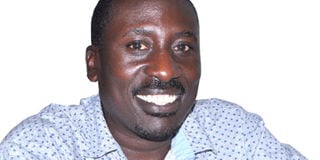After Covid-19, the ‘revolution’ will be complete

Revolutionaries are a rare breed of person. For when we are suffocated by serious economic problems, they feed off them. Such problems arise from disparities in the distribution of wealth, especially as between city and countryside, to foment a sense of grievance.
This then leads to the virgin birth of a saviour or saviour-figures who jump onto soap boxes to ensure that their message of salvation will wash with the peoples’ passion for change. But if the soap box is swept from beneath them, they take up the cudgels to storm the bastions of repression.
In Uganda and Cuba, the latter was true. Both Yoweri Museveni’s and Fidel Castro’s revolutions began in places which ended with vowels: Kabamba and Sierra Maestra. In their origins, the Cuban and Ugandan revolutions were led by professional men and intellectuals and subsidised by businessmen and landowners.
Museveni and Castro were petit bourgeoisies who both placed hands on their hearts and swore their allegiance to Marxism. However, they were hardly Marxian in their tactics.
Whereas Karl Marx believed that a class struggle would be resolved by a worker’s revolution, Museveni and Castro identified themselves more easily with the Chinese revolution, since it claimed a peasant base and utilised guerrilla methods.
They were thus more Maoist than Marxist, even though their small followings were reminiscent of the Russian revolutionary faction called the Mensheviks (which means ‘minority’).
Attacks on the Moncada barracks on July 26, 1953, in Cuba and Kabamba barracks on February 6, 1981, in Uganda culminated in Castro’s 26th of July Movement and Museveni’s Movement taking power on January 26, 1986. Both began as leaders of a small band of men hiding out in the hills and bushes. Both were never nominally part of any communist party.
Though somewhat Stalinist in temperament, there is no conclusive evidence that either was even a Marxist-Leninist. Castro began as a left-wing nationalist, a “utopian Socialist.” Throwing his reading glasses on to pore over Marx’s book Das Kapital at the University of Havana, he got lost in the dialectics and stopped reading on Page 370.
Javier Pazos, the son of Castro’s first head of the Bank of Cuba, who served as an officer on Castro’s staff in the Sierra Maestra until he was captured by Batista in early 1958, wrote, “The Fidel Castro I knew was definitely not a Marxist. Nor was he particularly interested in social revolution. He was, above all, a political opportunist—a man with a firm will and an extraordinary ambition. He thought in terms of winning power and keeping it.”
Sound like somebody you know?
They both always wore hats. Museveni’s made him look like a cowboy, while Castro’s allowed him to behave like one.
Castro leaned heavily on his brother Raul. They say Raul was more revolutionary of the two brothers.
Museveni too relies heavily on his brother, Salim Saleh. Or Rufu, which means “death” in Swahili. And thereby reveals the extremity of his revolutionary fervour. For if a revolutionary is known as death, he is more likely to extend this chilling appellation into the ranks of conservatism.
Saleh, like Raul, is an even-tempered man. When the NRM/A came to power in 1986, he was seen as a soft target by all those who wished to fleece the system. Owning businesses that he himself confessed to having lost count of and being exceedingly generous turned him into a “mark” for confidence tricksters.
Such conmen have a saying: “a sucker is born every second.”
Saleh was their sucker, and so they milked and bilked him when he was still in his cot of authority. Mercifully, he outgrew the nappies of his innocence by becoming wise to these grifters.
His knowledge of the world of low lives and two-bit hustlers evolved his worldview from strategy to stratagem. Like his brother, he became shrewd and cunning in the original sense of these words.
When Fidel died, Raul had learned enough about statecraft to counterbalance his own radicalism with Wall Street smarts. This is crucial in understanding a global economy aggregated around money markets and aid short of an “S” to reveal how it so ails Third World economies.
Fidel was Yoweri and Raul is Saleh. The first pair came of age in the bowels of “revolution,” while Raul and Saleh metamorphosed from radicals to realtors to the intellectual property of their respective “revolutions.” Of the four, three have become heads of State.
In future, the fourth shall complete this picture.
Mr Matogo is a digital marketing
manager with City Surprises Ltd
[email protected]




